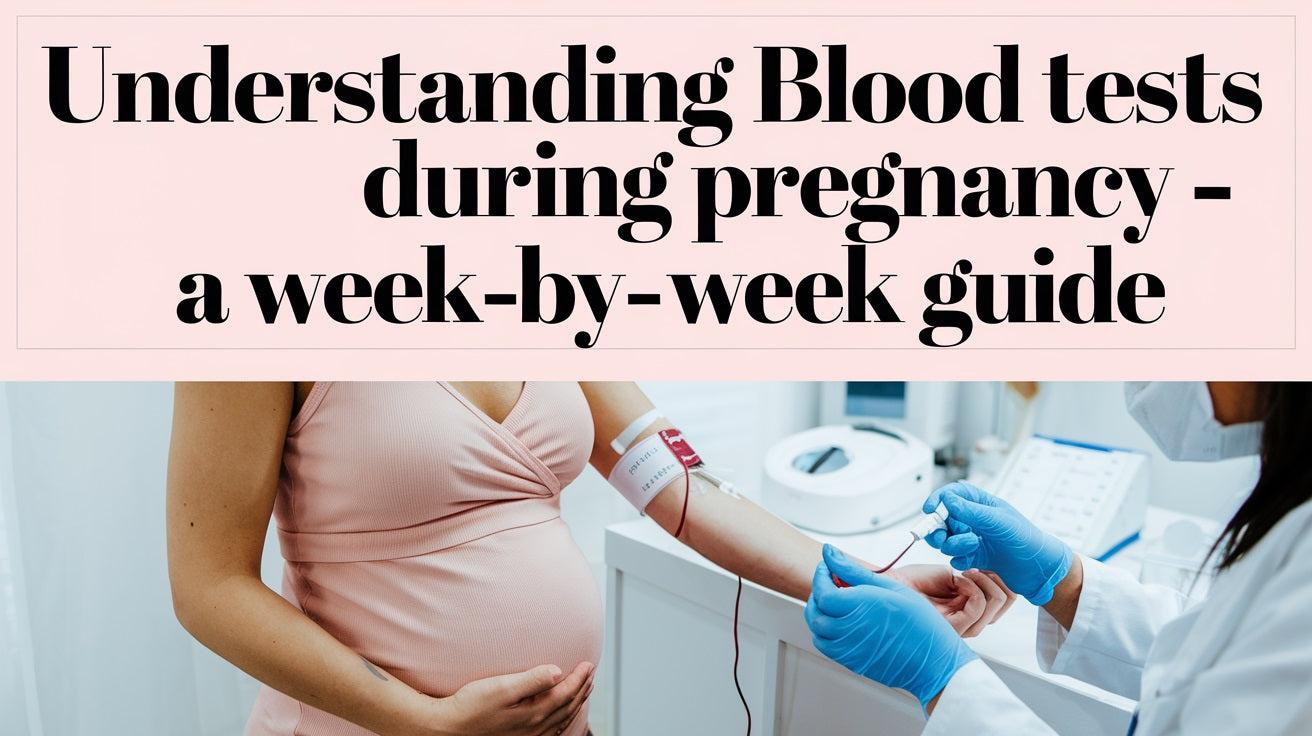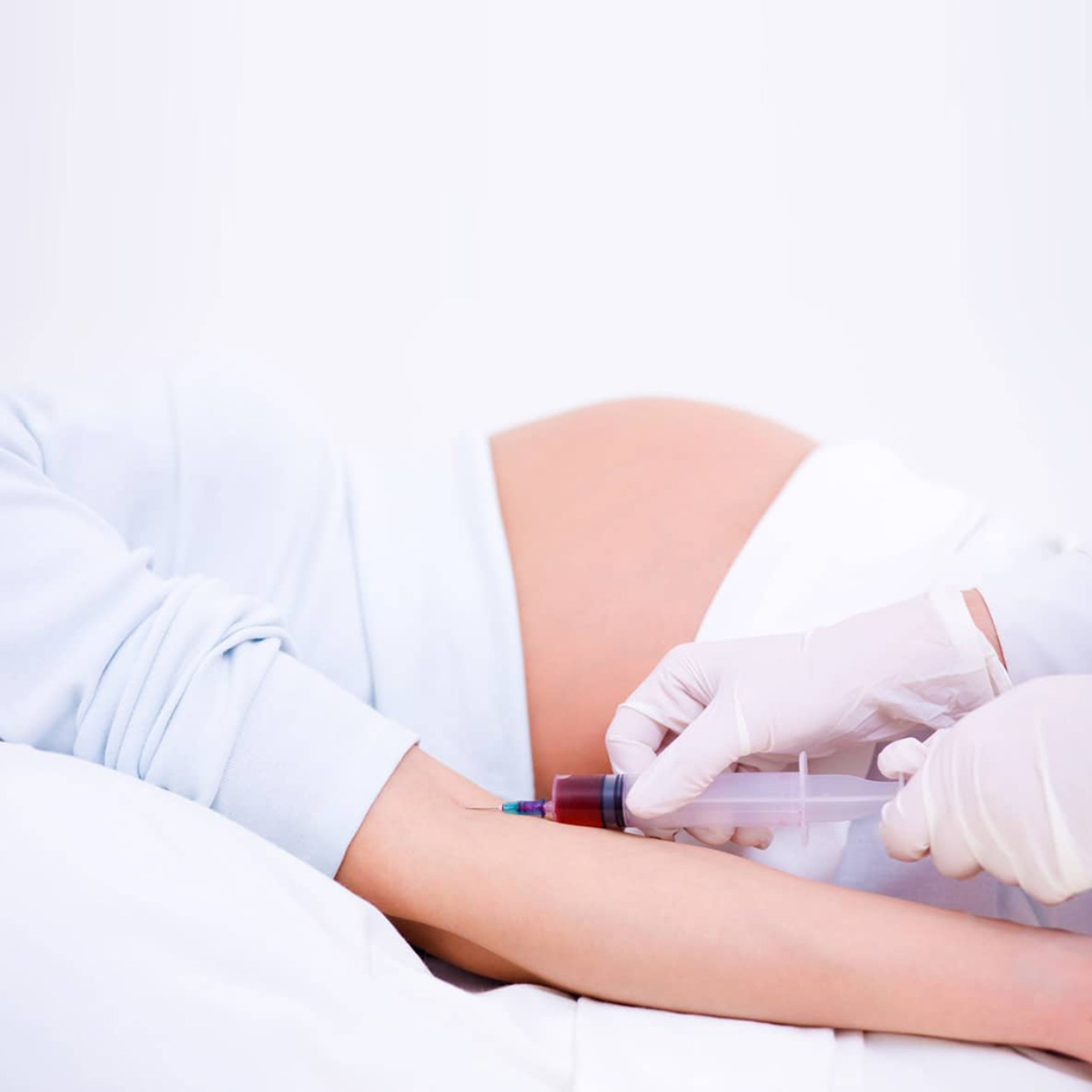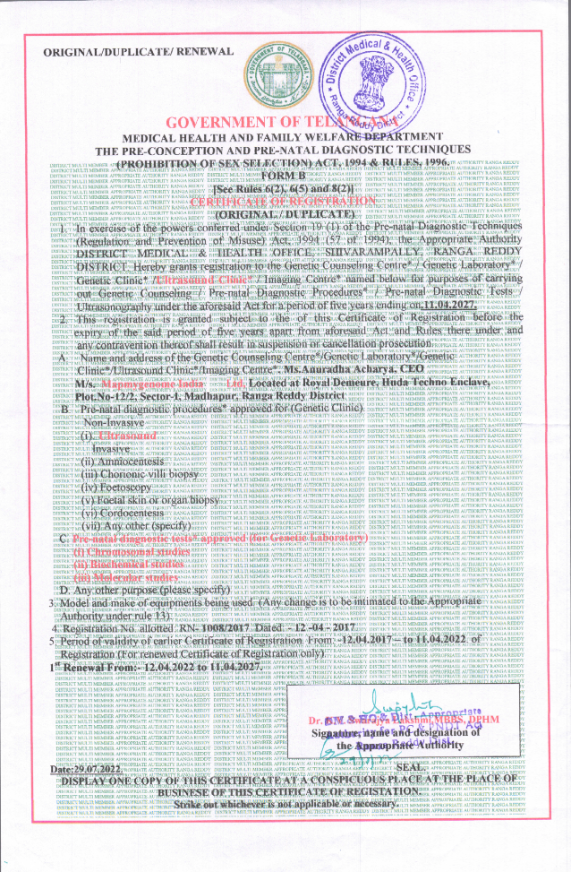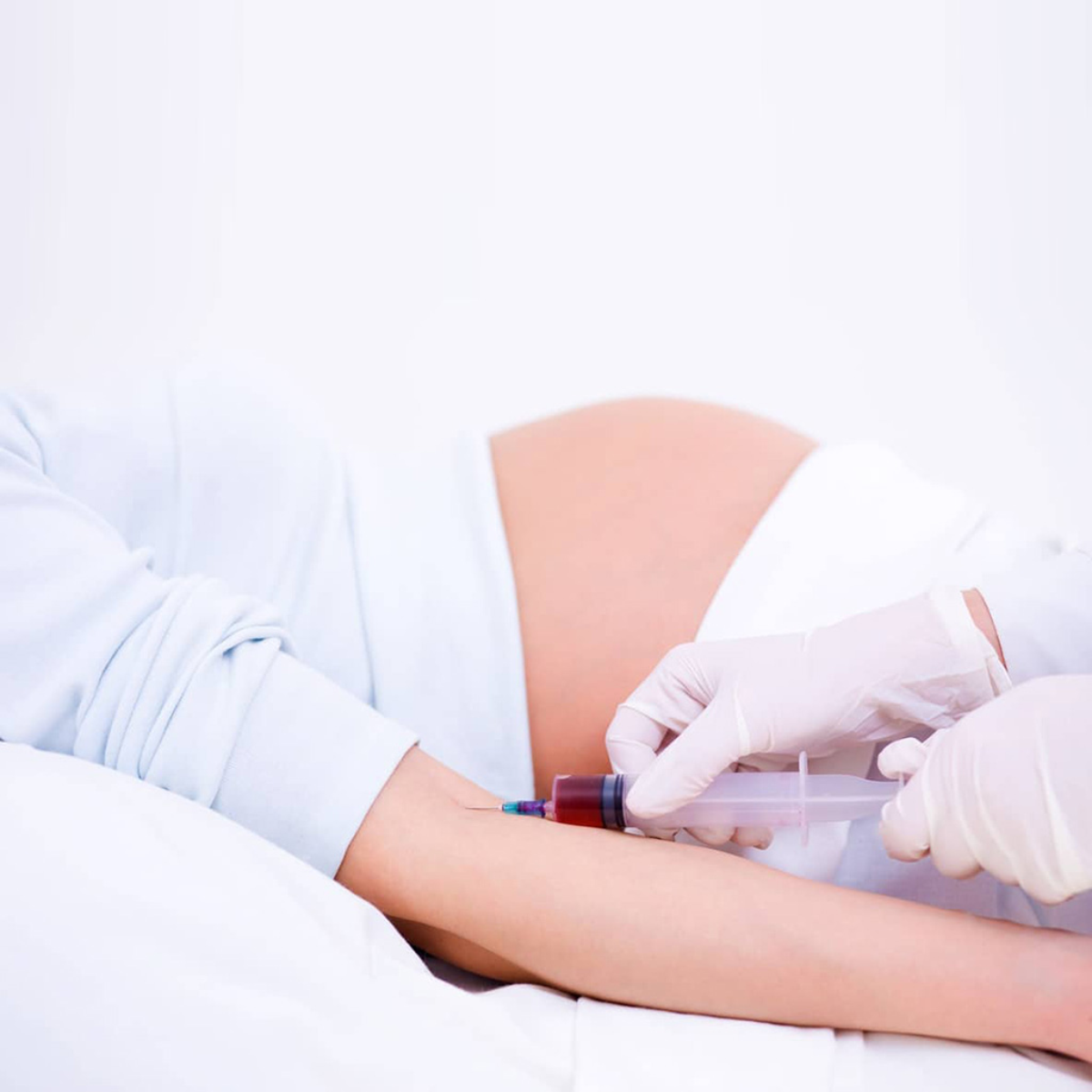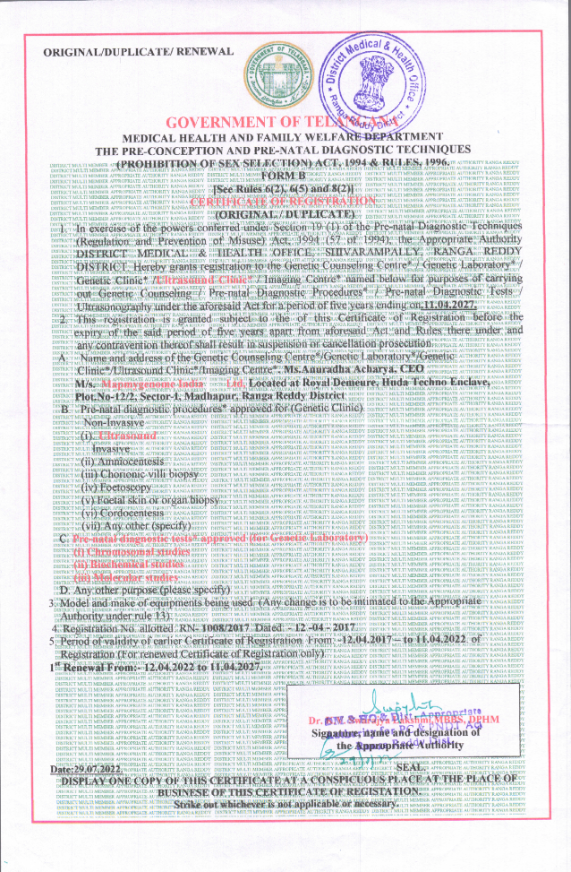गर्भावस्था एक रोमांचक और कभी-कभी भारी समय होता है, जो माँ और बच्चे दोनों के स्वास्थ्य के बारे में प्रत्याशा और चिंताओं से भरा होता है। प्रसवपूर्व देखभाल के सबसे महत्वपूर्ण घटकों में से एक गर्भावस्था के दौरान किए जाने वाले रक्त परीक्षणों की श्रृंखला है। ये परीक्षण माँ और विकासशील भ्रूण दोनों के स्वास्थ्य के बारे में अमूल्य जानकारी प्रदान करते हैं, जिससे गर्भावस्था सुचारू रूप से चलती है और संभावित जटिलताओं का जल्दी पता चलता है। यह व्यापक मार्गदर्शिका आपको गर्भावस्था के प्रत्येक तिमाही के दौरान किए जाने वाले रक्त परीक्षणों के प्रकारों के बारे में बताएगी, उनके उद्देश्य, समय और महत्व पर ध्यान केंद्रित करेगी।
गर्भावस्था के दौरान रक्त परीक्षण: पहली तिमाही
पहली तिमाही (सप्ताह 1-13) माँ और विकसित हो रहे भ्रूण दोनों के स्वास्थ्य का आकलन करने के लिए एक महत्वपूर्ण समय है। इस अवधि के दौरान, प्रारंभिक गर्भावस्था जटिलताओं और आनुवंशिक जोखिमों का पता लगाने के लिए कई रक्त परीक्षण किए जाते हैं।
1. पूर्ण रक्त गणना (सीबीसी)
गर्भावस्था के दौरान किए जाने वाले पहले रक्त परीक्षणों में से एक पूर्ण रक्त गणना (CBC) है। यह परीक्षण आपके रक्त के विभिन्न घटकों को मापता है, जिसमें लाल और सफेद रक्त कोशिकाएँ, हीमोग्लोबिन और प्लेटलेट्स शामिल हैं। यह एनीमिया, संक्रमण और रक्त के थक्के जमने जैसी स्थितियों की पहचान करने में मदद करता है, जो गर्भावस्था के परिणामों को प्रभावित कर सकते हैं।
2. रक्त प्रकार और आरएच फैक्टर
अपने रक्त प्रकार और Rh फैक्टर को जानना ज़रूरी है। अगर माँ Rh-नेगेटिव है और पिता Rh-पॉज़िटिव है, तो Rh असंगति का जोखिम हो सकता है, जिससे नवजात शिशु में हीमोलिटिक बीमारी हो सकती है। इस रक्त परीक्षण के ज़रिए शुरुआती पहचान इस स्थिति को प्रबंधित करने में मदद करती है।
3. एचआईवी, हेपेटाइटिस बी और सिफलिस परीक्षण
रक्त परीक्षण का उपयोग एचआईवी, हेपेटाइटिस बी और सिफलिस की जांच के लिए किया जाता है, क्योंकि ये संक्रमण गर्भावस्था या प्रसव के दौरान माँ से बच्चे में फैल सकते हैं। प्रारंभिक पहचान से संक्रमण के जोखिम को कम करने वाले हस्तक्षेप की अनुमति मिलती है।
4. रूबेला प्रतिरक्षा
रक्त परीक्षण से पता चलेगा कि आप रूबेला (जर्मन खसरा) के प्रति प्रतिरक्षित हैं या नहीं। गर्भावस्था के दौरान रूबेला गंभीर जन्म दोष पैदा कर सकता है, और यदि आप प्रतिरक्षित नहीं हैं, तो आपका डॉक्टर गर्भावस्था के दौरान आपको सुरक्षा प्रदान करने के लिए मार्गदर्शन प्रदान करेगा।
5. पहली तिमाही के दौरान आनुवंशिक परीक्षण
नॉन-इनवेसिव प्रीनेटल टेस्टिंग (NIPT) जैसे जेनेटिक ब्लड टेस्ट 10 सप्ताह की उम्र में ही किए जा सकते हैं। NIPT डाउन सिंड्रोम (ट्राइसोमी 21), ट्राइसोमी 18 और ट्राइसोमी 13 जैसी क्रोमोसोमल असामान्यताओं की जांच करता है। यह एक सरल रक्त परीक्षण है जो माँ के रक्त में घूम रहे भ्रूण के डीएनए का विश्लेषण करता है।
पहली तिमाही में किया जाने वाला एक अन्य आनुवंशिक परीक्षण फर्स्ट ट्राइमेस्टर स्क्रीनिंग है, जिसमें डाउन सिंड्रोम और अन्य गुणसूत्र विकारों के जोखिम का आकलन करने के लिए रक्त परीक्षण और अल्ट्रासाउंड (न्यूकल ट्रांस्ल्युसेंसी) का संयोजन किया जाता है।
गर्भावस्था के दौरान कितने रक्त परीक्षण?
गर्भावस्था के दौरान आवश्यक रक्त परीक्षणों की संख्या व्यक्तिगत जोखिम कारकों और स्वास्थ्य स्थितियों के आधार पर भिन्न हो सकती है। आम तौर पर, प्रत्येक तिमाही में कम से कम एक बार रक्त परीक्षण किया जाता है, और जटिलताएं या चिंताएं उत्पन्न होने पर अतिरिक्त परीक्षण किए जाते हैं।
दूसरी तिमाही के रक्त परीक्षण (सप्ताह 14-26)
दूसरी तिमाही में शिशु का विकास तेजी से होता है और माँ और भ्रूण दोनों के स्वास्थ्य को सुनिश्चित करने के लिए आगे की जांच की जाती है।
1. क्वाड स्क्रीन
लगभग 15-20 सप्ताह के दौरान, क्वाड स्क्रीन ब्लड टेस्ट किया जाता है। यह क्रोमोसोमल असामान्यताओं और स्पाइना बिफिडा जैसे न्यूरल ट्यूब दोषों के जोखिम का आकलन करने के लिए माँ के रक्त में चार पदार्थों (अल्फा-फेटोप्रोटीन, ह्यूमन कोरियोनिक गोनाडोट्रोपिन, एस्ट्रिऑल और इनहिबिन ए) को मापता है।
2. ग्लूकोज स्क्रीनिंग
24-28 सप्ताह के आसपास, गर्भावधि मधुमेह की जांच के लिए ग्लूकोज स्क्रीनिंग टेस्ट किया जाता है, यह एक ऐसी स्थिति है जो गर्भावस्था के दौरान विकसित हो सकती है और माँ और बच्चे दोनों को प्रभावित कर सकती है। यदि ग्लूकोज का स्तर अधिक है, तो निदान की पुष्टि के लिए अनुवर्ती ग्लूकोज सहनशीलता परीक्षण किया जा सकता है।
3. एंटीबॉडी स्क्रीनिंग
यदि माँ Rh-नेगेटिव है और बच्चे का पिता Rh-पॉज़िटिव है, तो यह जाँचने के लिए एंटीबॉडी स्क्रीन फिर से की जाती है कि क्या माँ ने बच्चे की रक्त कोशिकाओं के विरुद्ध एंटीबॉडी विकसित की है। यदि आवश्यक हो, तो जटिलताओं को रोकने के लिए माँ को Rh इम्युनोग्लोबुलिन शॉट दिया जाएगा।
तीसरी तिमाही के रक्त परीक्षण (सप्ताह 27-40)
जैसे-जैसे गर्भावस्था तीसरी तिमाही में आगे बढ़ती है, ध्यान प्रसव की तैयारी और यह सुनिश्चित करने की ओर जाता है कि बच्चा उम्मीद के मुताबिक बढ़ रहा है। इस अवधि के दौरान रक्त परीक्षण गर्भावस्था के अंतिम चरण में संभावित जटिलताओं के प्रबंधन के लिए महत्वपूर्ण हैं।
1. ग्रुप बी स्ट्रेप्टोकोकस (जीबीएस) टेस्ट
35-37 सप्ताह के आसपास, ग्रुप बी स्ट्रेप्टोकोकस (जीबीएस) परीक्षण किया जाता है। हालांकि यह मुख्य रूप से एक स्वाब परीक्षण है, कुछ स्वास्थ्य सेवा प्रदाता रक्त परीक्षण भी शामिल कर सकते हैं। जीबीएस एक सामान्य जीवाणु है जो प्रसव के दौरान बच्चे को पारित हो सकता है, जिससे संभावित रूप से गंभीर संक्रमण हो सकता है। यदि आपका परीक्षण सकारात्मक आता है, तो आपका डॉक्टर संक्रमण के जोखिम को कम करने के लिए प्रसव के दौरान एंटीबायोटिक्स प्रदान करेगा।
2. सीबीसी और अन्य रक्त परीक्षण दोहराएं
तीसरी तिमाही में, डॉक्टर दोबारा कंप्लीट ब्लड काउंट (CBC) करवाने का आदेश दे सकते हैं ताकि यह सुनिश्चित किया जा सके कि माँ को एनीमिया तो नहीं हो रहा है, जो गर्भावस्था के बाद के चरणों में आम है। व्यक्तिगत स्वास्थ्य आवश्यकताओं के आधार पर, लिवर फंक्शन, क्लॉटिंग डिसऑर्डर या थायरॉयड फंक्शन के लिए अतिरिक्त परीक्षण भी किए जा सकते हैं।
3. आरएच एंटीबॉडी परीक्षण
यदि माँ Rh-नेगेटिव है, तो 28वें सप्ताह के आसपास एक और Rh एंटीबॉडी परीक्षण किया जाता है ताकि बच्चे को नुकसान पहुँचाने वाले एंटीबॉडी की उपस्थिति की जाँच की जा सके। प्रसव के दौरान जटिलताओं को रोकने के लिए माँ को एक और Rh इम्युनोग्लोबुलिन इंजेक्शन दिया जा सकता है।
गर्भावस्था के दौरान सप्ताह दर सप्ताह परीक्षण: क्या अपेक्षा करें
इन परीक्षणों के समय को समझना आपकी गर्भावस्था की प्रगति के बारे में जानकारी रखने के लिए महत्वपूर्ण है। यहाँ तीन तिमाहियों के दौरान किए जाने वाले प्रमुख परीक्षणों का संक्षिप्त विवरण दिया गया है:
- प्रथम तिमाही (सप्ताह 1-13): सीबीसी, रक्त प्रकार और आरएच फैक्टर, एचआईवी/हेपेटाइटिस/सिफलिस स्क्रीनिंग, रूबेला प्रतिरक्षा, आनुवंशिक परीक्षण (एनआईपीटी या प्रथम तिमाही स्क्रीनिंग)।
- दूसरी तिमाही (सप्ताह 14-26): क्वाड स्क्रीन, ग्लूकोज स्क्रीनिंग, एंटीबॉडी स्क्रीनिंग।
- तीसरी तिमाही (सप्ताह 27-40): ग्रुप बी स्ट्रेप्टोकोकस परीक्षण, दोहराई गई सीबीसी, आरएच एंटीबॉडी परीक्षण।
प्रथम तिमाही स्क्रीनिंग रक्त परीक्षण परिणाम: उनका क्या अर्थ है
पहली तिमाही की स्क्रीनिंग के परिणाम आमतौर पर जोखिम अनुपात के रूप में प्रस्तुत किए जाते हैं, जो आपके बच्चे में गुणसूत्र संबंधी असामान्यता होने की संभावना को दर्शाता है। उच्च जोखिम वाले परिणाम का मतलब यह नहीं है कि आपके बच्चे को कोई विकार है, लेकिन यह एक निश्चित निदान के लिए एमनियोसेंटेसिस या कोरियोनिक विलस सैंपलिंग (सीवीएस) जैसे आगे के नैदानिक परीक्षणों की ओर ले जा सकता है।
गर्भावस्था के दौरान आनुवंशिक परीक्षण: एक महत्वपूर्ण उपकरण
गर्भावस्था के दौरान आनुवंशिक परीक्षण , विशेष रूप से पहली तिमाही में, माता-पिता बनने वाले लोगों के लिए एक आवश्यक उपकरण बन रहा है। प्रौद्योगिकी में प्रगति के साथ, एनआईपीटी जैसे परीक्षण प्रारंभिक अवस्था में गुणसूत्र संबंधी असामान्यताओं की जांच करने के लिए गैर-आक्रामक तरीके प्रदान करते हैं, जिससे माता-पिता को अपने बच्चे के स्वास्थ्य के बारे में मूल्यवान जानकारी मिलती है।
निष्कर्ष
रक्त परीक्षण प्रसवपूर्व देखभाल का एक महत्वपूर्ण हिस्सा हैं, जो गर्भावस्था के हर चरण में महत्वपूर्ण जानकारी प्रदान करते हैं। पहली तिमाही में संक्रमण का पता लगाने और आनुवंशिक जोखिमों को प्रबंधित करने से लेकर तीसरी तिमाही में प्रसव की तैयारी तक, ये परीक्षण माँ और बच्चे दोनों के लिए सुरक्षित और स्वस्थ गर्भावस्था सुनिश्चित करने में मदद करते हैं। यदि आप गर्भवती हैं, तो अपने स्वास्थ्य सेवा प्रदाता से आवश्यक रक्त परीक्षणों और जांचों के बारे में बात करें जो आपको और आपके बच्चे को सर्वोत्तम देखभाल प्रदान करेंगे।


